This roundup post will reveal the most effective cybersecurity strategy for a small business.
Small business owners encounter a series of cyber threats, which might be deadly depending on their impact.
We asked top executives, small business owners, and cybersecurity experts: What Is the Most Effective Cybersecurity Strategy for a Small Business?
So, after several email requests, Skype interviews, and phone calls, we got valuable responses.
Table of Contents
48 Effective Cybersecurity Strategy For A Small Business
Paul Lipman – CEO of BullGuard Cybersecurity Company
A multifaceted cybersecurity approach is the best cybersecurity strategy. Small businesses are more vulnerable to cyberattacks as these companies are typically not as well protected as their larger enterprise counterparts.
Small businesses must develop a cohesive cybersecurity plan that includes and communicates standards for security software to be run on every device on which work is done.
Security software must include anti-phishing capabilities to protect data and prevent security breaches.
Lev Barinksiy – CEO of SmartFinancial Insurance
Several insurance companies currently offer cyber insurance to small businesses. However, it is helpful for a small business to recruit a network defence specialist to improve their overall cybersecurity in their business environment.
Down the line, when cyber insurance becomes generally accepted, it will become a prerequisite for small business owners to provide the audit of the company’s defence processes.
Braden Perry – Cybersecurity Attorney at Kennyhertz Perry, LLC
I work with several companies on cyber intrusions. The most significant trend is the increase in outsider attacks on small and large companies.
For outsider attacks, these cyber threats target company websites to deliver malicious payloads, which can cause severe damage.
With a stringent cybersecurity implementation and policy, small business owners can mitigate outsider attacks significantly.
Logan Kipp – Director at SiteLock
Implement training & education: With the sudden shift to remote work, small businesses should educate their employees on security best practices when working online. From spotting phishing emails to utilizing two-factor authentication (2FA) and a strong password, companies can help ensure employees take all necessary steps internally to protect themselves.
By teaching employees to keep security top of mind at all times, companies can also establish a standard operating procedure, or “SOP,” on how documents should be handled and how potential vulnerabilities should be reported when working remotely.
Utilize VPN & website security tools: SMBs should use a virtual private network (VPN) when relying on external networks. In these even employees’ home networks, management of security controls is outside of the company’s scope. VPNs protect data by encrypting it as it’s transmitted across shared or public networks, keeping sensitive information, such as SSNs, passwords and credit card numbers, from being exposed.
Additionally, small businesses should routinely scan their websites for malware and vulnerabilities. By being proactive with their cybersecurity hygiene, organizations can help ensure that their customers and data remain safe and secure.
Be aware of the data you’re sharing: From inputting customer information into an online form to simply sending an email, businesses need to be mindful of the private information they share online. By being careful with sensitive information, companies can limit the risk of catastrophic data leaks if they fall victim to a hack or breach.
Kenny Trinh – Founder & CEO of NetbookNews
The perfect cybersecurity strategy for a small business is regular backups. Backups are essential, especially in a small business environment.
Likewise, relying on human intervention, such as plugging in a flash drive, is a recipe for cybersecurity failure.
Stacy Clements – Owner of Milepost 42 and Retired Air Force Cyber Operations Officer
An effective cybersecurity strategy for a small business requires identifying cyber risks and determining appropriate ways to mitigate those risks and respond to cyber events.
The NIST Cybersecurity Framework provides this strategy for small companies, with best practices based on input from government, academic, and private sector professionals.
The Framework was deliberately designed to be flexible so it can be used for different sizes and types of entities.
Because it’s a free resource, several sectors have already created customized resources, such as the National Restaurant Association Toolkit for Restaurant Operators. Using the Framework to define and mitigate risk is an excellent strategy for small business owners.
I recommend that small businesses should secure themselves with antivirus software and firewalls in the first place. Even if it sounds basic, you would be surprised how many companies are not using up-to-date anti-malware solutions. That should be your first-level defence.
Both access control strategy and cybersecurity minimize human error. Determining who in the company structure will have access to different types of data is crucial. Every access should be recorded in the log file.
Many attacks or information leaks are dependent on the employees. Hackers often use social engineering for that purpose. Where possible, implement multi-factor authentication and reduce the chance of ransomware attacks by regular backups.
Marty Puranik – President & CEO of Atlantic.Net, a HIPAA-Compliant Web Host
Companies should seek a solution that mitigates current cybersecurity challenges, provides ongoing support, and helps offset risks from the evolving threats of the future.
Small businesses could utilize their resources in good faith and provide training to staff. Still, the challenges and threats are incredibly diverse and require a wide range of expertise.
So, the best practice is to focus on your business’s core function and let a vetted third-party provider take care of the rest. They have trained professionals who help deploy the best solutions, provide ongoing support, and are always available to help support your business.
Mike Shelah – Account Executive at Advantage Industries
The best Cybersecurity Strategy is: “Technology, Training, Insurance & Process Documentation.”
It all begins with the right technology — consistent updates, the proper firewall, the proper spam filtering and antivirus, as well as the use of multi-factor authentication.
Then, you train your people regularly with monthly, easy-to-digest lessons. This helps to create a culture of compliance.
You work closely with people who ignore the training or perform poorly on tests, as they are your greatest vulnerability. Work with your IT vendor and insurance agent to pick a policy that accurately reflects your company and needs.
Lastly, document all of your policies and procedures related to your industry and compliance regulations.
Carl Fransen – Founder & CEO of CTECH Consulting Group
There must be an acknowledgement that having a firewall, server passwords/permissions, and an antivirus does not constitute adequate protection today.
Moving away from the traditional systems, such as relying on an on-premise server whose security is based on a password and user permissions, to a modern system that contains identity management, threat analytics, document protection, and multi-factor authentication must be part of any company’s security planning.
For an effective cybersecurity strategy, there’s always a need to address the weakest link in any organization: the staff.
Staff needs to be trained on properly using the company’s systems, identifying potential threats, and having a working knowledge of the proper security procedures.
Centralizing and dashboarding multiple security systems to provide a ‘single pane of glass’ overview of what is happening within a business will help technical staff correlate relevant data and make the appropriate decisions.
Cameron Call – Technical Operations Manager at Network Security Associates
There are two simple things that every small business needs to implement. Once these are in place, they can begin building an effective strategy.
If you don’t have anything else, you should have backups. Anything in a network, or even an entire network, can be replaced. Data, however, cannot. Your client list, their files, accounts receivable entries, or anything else needed for the business to operate should be backed up.
After backups are MFA, with MFA, you don’t have to rely so much on your or your staff’s ability to detect a phishing email. It also helps if usernames and passwords are leaked online due to the fault of a service provider.
Sean Nguyen – Director of Internet Advisor
As small business owners, we’re aware that we’re the primary target for cybercriminals because we’re seen as easy hits. The statistics are brutal; this is the kind of thing that can wipe you out.
With remote work, I strongly emphasise employee security – full cybersecurity training, supplied security software, company devices with full facial recognition, etc.
The website is also fully locked down, from our domain to anti-spyware software, security patches, and everything else. We have security professionals checking everything regularly for suspicious activity. Our strategy is to “be over-prepared for every possible scenario”.
Dan Merino – CEO of Green Dot Security
Backups – Any good security person should say that the most locked down network is still open to attacks if the attacker is motivated enough; backups (especially with an offline and offsite copy) can get you out of many issues
Documentation – As much as possible, documents that spell out what to do in the case of a breach or cybersecurity incident can reduce downtime, speed up the isolation of issues and help the company to understand where they have shortcomings in security. Documentation should include a Cyber Incident Response Plan, Information Security Policy, Disaster Recovery / Business Continuity Plan and maybe more like a Security Framework Policy (which would outline the company’s various implemented security plans)
Layering – Adding as many different services and devices as can be afforded to help prevent attacks. For example, the firewall should have subscription security services so the gateway is more than just a traffic cop.
Security Awareness Training – At the end of the day, the weakest point in most networks is the users themselves. Many attacks exploit the fact that tech is complicated, and humans are easily tricked. Training should make users aware of the dangers that exist.
- READ ALSO: 15 Tips To Protect Your Privacy Online
Naheed Mir – Owner of Rugknots
The best cybersecurity strategy I recommend for small businesses is cloud security. Even though the cloud is a bit risky, you are less likely to lose critical data by storing data in the cloud.
Utilizing the cloud for storing data is an economical choice for small to average-sized organizations.
Whenever smaller businesses develop due to expanded sales, cloud storage and security tools can scale with the company. As cloud security constantly improves, your business must opt for cloud storage security.
Calloway Cook – President of Illuminate Labs
Crafting a cybersecurity strategy for a small business is a cakewalk process. Web admins can set up reCAPTCHA on their forms for free using Google Developer Tools. This is a must for more prominent organisations because the more employees your company has, the more significant the attack vector.
reCAPTCHA is the best free tool available to ensure that forms are being completed by a human rather than a bot. It’s not perfect, and humans can still manually submit spam or phishing messages. However, this is a quick way to reduce risk, making it a cybersecurity significantly best practice.
Mark Soto – Founder of Cybericus Cybersecurity Company
Use network segmentation, a process where you split your computer network into multiple segments.
Using network segmentation can help prevent your entire system from getting compromised if hackers can access one of your networks. It also gives you time to react in the worst-case scenario where the other networks are also in danger of being hacked.
With network segmentation, you can specify which network resources your users can access. This might be the most significant benefit of network segmentation in a world where malicious internal users make up at least 30% of data breaches.
Jack Kudale – CEO of Cowbell Cyber
Cyber insurance is critical in protecting the assets of small businesses. Given their limited IT budgets and resources, small businesses are as susceptible to cyberattacks as large organizations and are heavily targeted by cybercriminals.
Small businesses can now benefit from tailored, standalone cyber coverage to help cover Security Breach Expenses, Security Breach Liability, Cyber Extortion and Ransomware Payment, and losses from Social Engineering incidents.
Cyberattacks are no longer an “if” scenario but rather a “when” scenario. Cyber insurance is a crucial step to mitigate the dreaded financial losses in the aftermath of a breach.
Zoran Naumoski – Awareness Expert at Li-Fi
As a small business owner working from home office for cyber-security, I strongly recommend using a Li-Fi internet connection in your office instead of the classic Wi-Fi connection, which can be easily hacked.
But with Li-Fi, it is the opposite and cannot be hacked by someone outside your office. Apart from that, small businesses should also focus on layered cybersecurity systems for their cybersecurity strategy.
The biggest threat today is the unknown, so when it comes to cybersecurity, the best thing small businesses can do is educate themselves. They might have a lean team of IT people who know IT but don’t understand where cybersecurity fits.
There are free tools small businesses can put in place that are very effective in combating many common cyber threats, so they must understand what those are and how to implement them.
Johnny Santiago – Brand Partnerships Manager for Social Catfish
Ransomware is a typical phishing attack, an encrypting malware that encrypts essential company files and holds them for ransom. Ransoms typically range from hundreds to thousands of dollars. Cybercriminals made over $1 billion last year from businesses attacked by ransomware.
Never open an attachment in an email you did not expect to receive or recognize the sender. It would be best to use the same caution when presented with URLs that you do not know, or that came from an unknown sender.
With today’s advanced ransomware techniques, you only have to visit a website to become infected. You DO NOT have to click anything on the site to infect the company with data encrypting ransomware.
Please follow the best practices outlined above to ensure you do your part to keep ransomware off the company network. Failure to do so could result in significant downtime and monetary cost to the business, and we all need to be vigilant in stopping these attacks.
Ben Walker – Founder & CEO of Transcription Outsourcing, LLC
We work in the legal, law enforcement, medical, financial, and academic industries and have to abide by some stringent confidentiality agreements.
That’s why I would tell you to host everything in the cloud with a company with HIPAA and CJIS compliance certifications and run criminal background checks on all your employees with sensitive data access.
We also have general liability and a separate cyber liability policy in case something terrible happens.
Neil Kittleson – CEO of NKrypt
Cybersecurity strategies for small businesses must focus on protecting proprietary, employee, and customer data. In today’s world, that means that you must leverage outside providers to help manage all of the systems needed to preserve the full scope of your organization.
The first step is to invest in the right external providers for data storage, email services, video conferencing, and collaboration tools.
The second is applying the right security policies to use those tools: Enforce two-factor authentication, require VPN use by employees, and implement mobile device management.
The last step is training your employees on the risks to the business presented by cyber adversaries and ensuring they understand your tools and policies and why they are essential.
Paul Kubler – Red Team Head at CYBRI
Small business owners’ most effective cybersecurity strategy to protect themselves against cyber attacks is to go after the low-hanging fruits, otherwise known as the 80-20 rule. A straightforward yet practical example is enabling multi-factor authentication on email accounts.
Another effective cybersecurity strategy for small businesses is to ensure that all passwords are longer than 14 characters and offer some complexity.
These give SMBs a considerable head start on cybersecurity cos it almost nothing and takes little time to set up. That way, a local business opportunity stands a chance against cyber threats.
Nir Kshetri – Professor at the University of North Carolina-Greensboro and a Research Fellow at Kobe University
It is essential to develop effective policy and cybersecurity-ready human capital, which includes improving cyber-defence capabilities and minimizing deviant behaviours in the workforce. This is because the human factor is the weakest link in cybersecurity.
According to Dell SecureWorks, 90% of all malware infections involve human elements, such as opening email attachments or clicking links on websites before they can infiltrate the targets. CybSafe’s analysis of the data from the U.K.’s ICO indicated that human errors accounted for 90% of data breaches in the U.K. in 2019.
SMEs can take advantage of cybersecurity training provided by companies in effectively identifying and screening phishing emails. It is also essential to develop clear policies regarding access to organizational data and networks, especially during COVID-19 and remote working.
Bryan Osima – CEO of Uvietech Software Solutions
A standard entryway for a malicious attack on your website is through the forms and web applications that allow visitors to interact dynamically with your business. Most visits to your website will be benign, but all it takes is one malicious user or automated bot that crawls the internet, looking for vulnerable websites, to bring down your entire system.
These attacks work when malicious codes and scripts are injected into your site through your contact forms, order forms or other types of user input like comments, etc.
These scripts could either execute malicious codes that can hijack and bring down your server or databases or take over your website and inject codes into your web pages that affect other site users (this is known as a Cross-site Scripting attack).
With such cross-site scripting attacks, users to your site could have all communications from your site redirected to other sites, where phishing or other scam activities can be carried out, or their computers could be infected with malware that turns their machines into spam bots that the malicious users control.
The solution to these attacks is to securely validate all input to your website through any exposed entry points, whether web forms, comment boxes, etc.
Never trust any input into your system, and thoroughly validate any submissions you receive to ensure that the types of content you expect are what you’re getting and that no malicious scripts are being introduced to your system from your website’s entry points.
Tomas Statkus – CEO of ReviewedbyPro
The cheapest and the most influential small business security strategy is to use a VPN with a dedicated IP address (Virtual Private Network).
It can add many security features for the business, including malware protection, data encryption, Wi-Fi network protection, and secure connection to the website management systems, banks, CRM systems, etc.
Brad Snow – Cloud Computing Specialist at Bridgepointe Technologies & Co-founder of Tech Exec Roundtable
All employees must take security seriously and understand the potential ramifications of a breach.
All employees must be trained in security; I suggest training be done not just when onboarding but periodically throughout employment, such as a monthly refresher that includes pass/fail requirements. Also, phishing test emails are not a bad idea as a training component.
- Updates: be sure someone is not just clicking past these.
- Multi-factor authentication, a minimum of 2FA.
- Firewall, don’t go cheap, but you don’t need to break the bank.
- Limit exposure generally; if they don’t NEED access, don’t grant it.
Interview local MSPs if they are trying to scare you…it’s a red flag! You need someone who understands your work environment/flow and can help optimize security. If they aren’t, at minimum, mentioning all the things above, move on as well.
Security has to be taken seriously, and due to the ever-changing environment, it must be an ongoing effort. These are a few relatively simple things you can do independently, but no matter your size, hiring someone to handle them is worth exploring.
Scott Croskey – Global Chief Security Officer at Cipher Security and part-time US Air Force Cyber Warfare Officer at US Cyber Command
Small businesses still operating are likely doing so from a “work from home” (WFH) model. The best return on investment today is to protect your employee’s laptops/workstations.
At the same time, they work remotely with robust endpoint protection software and outsource the 24/7 management of it to a Managed Security Service Provider (MSSP).
This will cost a fraction of what it would cost to hire staff to support 24/7 operations fully. Also, ensure the MSSP can protect your cloud-based environments, if applicable.
David Bell – Cybersecurity Editor at CountryVPNs
I believe a small business that can’t afford to hire an MSSP or install cybersecurity technology should use a top-notch VPN service and a quality antivirus program.
A top-notch VPN service will not only help them hide their location by swapping their actual IP with the IP of the country they are connected to, but it will also encrypt their online communication so no one can access what they are doing online.
A quality Antivirus will block any malware used by cybercriminals in cyberattacks. So, if these two things are in place, small businesses have ensured their cybersecurity strategy.
Osama Tahir – Cybersecurity Editor at VPNRanks
As a Cybersecurity expert, here’s my checklist of cybersecurity best practices for small business owners.
- Small business owners must understand the risk factors and arrange digital assets for online safety.
- They must protect their network access with Safe Wi-FI, Strong firewalls and more.
- Limited access: This is an access control strategy, but one needs to find out or research which person needs access to which data.
- Educate employees continually to use strong and secure passwords.
- Ensure that your gadgets/equipment/devices are updated to the mark and secure from cyber-attacks.
- Safest Cybersecurity Strategy: You must maintain the backup and recovery for the safe side.
- Help from experts: Cybersecurity is quite complicated, especially for small businesses; you need to hire a consultant for help.
Mihai Corbuleac – Information Security Consultant at StratusPointIT
There are many different approaches to cybersecurity, but the most critical aspect is to take action. To protect your business against any malware, it’s crucial to implement a 360-degree cybersecurity plan, including well-configured firewalls, antivirus software, a backup policy, and network security solutions to protect all connected devices.
Firstly, your security strategy should focus on identifying critical digital assets. Secondly, implement a secure communication method and create an efficient password management protocol. Safeguard your backups, and most importantly, educate your employees.
Other vital aspects – include using robust authentication methods (MFA – token, smart card, mobile app), physically securing equipment and ports, defining strong security rules for administrators, using traffic monitoring tools, performing regular internal security audits, etc.
For email security (because the email service is the primary vector for malware infections), you can handle it in-house with the right software (such as Mimecast) and regular security training for all email users, as it can significantly mitigate human error.
Shagun Chauhan – Business Consultant at iFour Technolab
Every company is different, and their needs must be unique from those of competitors. It starts with building a cybersecurity strategy covering all threats, policy-making, access control, etc. As you build out your plan, here is one of the strong pillars you must focus on.
Many threats, such as phishing, ransomware, drive-by-downloads, etc., threaten businesses. Understand the threat and plan a successful attack to secure your company.
By understanding the critical assets from hubs of the network to the personal devices used by the employees and customers of your company and taking stock of digital landscapes, one can learn how to protect them.
This is because steps should be taken to protect the business from sudden cyber-attacks, which may affect the company’s continuity and cause a loss of data.
Nick Santora – CEO and Founder of Curricula, A Cybersecurity Awareness Training Company
It’s security awareness training to recognize warning signs from potential hackers.
Small business leaders are running a mile a minute. They don’t have an IT team but have tremendous risk because one security breach could end them.
Your employees are on the frontlines to help protect your organization. It’s essential to teach employees how to be aware of threats, such as phishing scams.
For example, send real-world simulated email tests to your employees’ inboxes every month. It’s interesting to see how many people fail these tests and show the risk of being victims of a phishing scam.
Dan L. Dodson – CEO of Fortified Health Security
With the economic environment the world was operating in changing overnight, small businesses need to remember the fundamentals of cybersecurity and ask themselves how the new work atmosphere could pose a more significant risk of attack, how to address those risks, and how to respond to an attack.
Vulnerabilities must be identified to understand how cybercriminals can access a network. The small business community must adapt to these new business models to protect their hard-earned reputation and preserve the confidence of the people with whom they do business.
Sanjay Patoliya – Founder and Director of Teclogiq
Your business cannot operate effectively without access to your data. If you don’t back it up, your data may not be there for you when you need it the most.
A busy office creates thousands of files each day, and the secure backup of these files needs to be a part of your company’s cybersecurity strategy.
Backups should be made daily and mirrored in the cloud or an offsite server. An IT support and IT security professional should oversee backups.
Stuart Cooke – Marketing Manager at Evalian
In my opinion, educating your staff so that they can recognise the danger signs of a possible cybersecurity breach is the most crucial strategy for a small business.
Adequate cybersecurity training will ensure that your staff are more likely to spot suspicious activity and report it before it worsens. This could be the difference between addressing a data breach and stopping it before the hacker can get into your systems.
By training your staff on the signs to look out for, they will be less likely to open suspicious emails from addresses they don’t recognise and know to flag anything they believe to be fraudulent. The best rule to implement across your team is ‘if in doubt, flag it with an appropriate team member just to be safe’.
Chris Noles – President of Beyond Computer Solutions
There is no silver bullet to prevent a cyberattack, but there are layers of protection that you can implement to reduce your risk significantly. Cybersecurity is like having a monitored alarm system in your home so that you can detect intrusions.
Here are some essential guidelines to follow:
- Multifactor or Two Factor authentication: You should enable this for all websites that contain personal, financial or healthcare information. It would be best to allow this for your email to prevent business email compromise.
- Train your staff – this is extremely important because attackers are not hacking their way in – companies are letting the attackers in because they are tricked by phishing emails!
- Change passwords every 60 to 90 days, and don’t use the same password for multiple websites.
- Have a computer use policy for your staff that defines how technology can, and more importantly, SHOULD NOT be used.
- Update your computer systems with the latest updates
- Partner with a Cybersecurity solutions provider like Experian or SpyCloud that focuses on detecting intrusions before they become breaches. Unfortunately, most companies are compromised months before being aware of an intrusion.
Erik Kangas – Founder of LuxSci, Former Senior Software Engineer at Akamai Technologies, and currently a Visiting Professor in Physics at MIT
The best general advice for a cybersecurity strategy would be to hire intelligent, experienced cybersecurity people and place them in positions of authority concerning product development, IT infrastructure, and vendor choice.
They can help guide your organization to a solid cybersecurity footprint that is customized and appropriate for your particular business.
Beyond that, outsource any IT services to vendors respected for their security programs. This lowers IT costs and your organization’s risk and liability concerning security.
Steven J.J. Weisman, Esq. – Lawyer, Author, College Professor at Bentley University, and Owner of Scamicide
Small and medium-size businesses are significant targets for cyberattacks. Often, small and medium-sized businesses don’t correctly establish security protocols and fail to monitor and update security procedures.
While steps such as establishing proper firewalls, using security software and updating it as soon as updates are available, encrypting data, using strong passwords, using dual-factor authentication and not permitting unauthorized devices to be plugged into office computers are all essential elements of a security plan, the best thing that any company can do is to train its employees to recognize and avoid phishing and spear phishing emails and text messages.
Spear phishing emails are the basis of almost all cyberattacks; training employees to recognize these phishing emails and having a policy of not clicking on links or downloading attachments unless verified to be legitimate is the best thing a company can do.
Alex Artamonov – Systems Engineer and Cybersecurity Specialist at Infinitely Virtual
Due to both limited budgets and limited personnel, small businesses need to focus on immediate threats. Given resource constraints, training end-users are typically Job #1. That means mitigating such intrusions as phishing and malware infections; the most cost-effective way to do so often involves turning to paid and free courses online.
Step #2 is creating an effective security policy consisting of strong passwords, regular password changes and two-factor authentication. That last item may prevent unauthorized access to confidential data, even if a user account is compromised.
Step #3: turn on the auto-update feature within the OS and any app. Step #4: Install anti-malware software from a reputable vendor. Finally, perform regular backups to local media and offsite storage (e.g., the cloud). Verify that backups were successful, and do regular test restores.
Alex Paretski – Knowledge Manager at Itransition
Regardless of their size, businesses must stick to the continuous security approach to guarantee the protection of their digital assets and data.
Unlike large enterprises, smaller companies can succeed in guarding their cybersecurity without investing in complex solutions. Instead, they can focus on more frequent employee security training, endpoint and device protection.
Small companies can also run comprehensive security tests more often than large companies.
For example, they can perform penetration testing and vulnerability assessments every six months or after any software and hardware modifications are made. These are some of the most effective activities to proactively detect and fix security defects promptly.
Mark Stamford – Founder of OccamSec
Determine your critical assets and how much risk you are willing to assume. Risks include fines for getting hacked and increased insurance premiums.
Securing Wi-Fi and strengthening passwords are crucial. Finally, small businesses have decided how to secure their assets with their budgets.
And the risks are real. We breached a company full of social media users by friending them on social media and ultimately having them send us passwords – most strategies around small businesses will not focus on social media security.
Still, in this case, they should have. Bad guys don’t follow a ‘book”; they find the easiest way in and exploit it.
Adi Donna – Founder of Cozy Down Home
The firewall is a set of programs that protects the internet from hackers and prevents them from accessing data through private networks. Users can enable firewall protection from their system settings or install free firewall software available online.
Since most businesses work from home and hackers are more active than before, it is best to protect the internet connections so your relevant documents are not cracked or hacked during transferring.
If using mobile devices to hold company credentials, protect the devices with strong passwords and encrypted data, and install security apps to prevent your files from stealing when the phone is using public networks.
Ken Jenkins – Principal and Founder of EmberSec
A threat-informed cybersecurity posture remains a robust approach. This includes understanding threats and the business’s risk tolerance.
Instead of protecting on-prem employee workstations, sensitive data, and critical infrastructure, companies must focus on the attack surface and cover cloud-hosted solutions, including email, collaboration capabilities, authentication systems, and file sharing.
Understanding the cybersecurity baseline and reestablishing how to defend against it will strengthen the cybersecurity posture and raise the cost to adversaries.
Other recommendations:
- Enforce the use of multi-factor authentication
- Prioritize email security and boost anti-phishing training and awareness
- Continuously patch applications and operating systems
- Apply the CIS Top 20 framework
Gintaras Steponkus – Marketing Manager at SolidGuides
Cloud backup service is no longer optional for small businesses as data backups have become necessary due to cyber attacks. However, there is a difference between the speed and reliability of the services available in the market.
Use services with high data transfer rates and strict security measures such as 2FA authentication, end-to-end encryption, etc.
Your data backup service should be on all the employees’ laptops dealing with company documents. Moreover, sometimes you need your data quickly, so choose the one that provides data delivery services on hard drives.
Steve Harrington – Vice President at Cygilant, a SMB-focused Cybersecurity Provider
Today’s small businesses face a trio of problems – fewer financial means, continued difficulty in hiring needed talent, and a continued onslaught of threats and breach attempts from cybercriminals who view their systems as easier to infiltrate. For many, this resource crunch has been exacerbated by the pandemic crisis.
Small businesses would be wise to seek managed services partners who can extend their team’s capabilities with automated technology and hands-on expertise, helping them overcome resource constraints while actively reducing threats and making compliance reporting easier.
Limiting the time small business IT staff need to spend managing daily alerts will maximize their time for situations more critical to the business.
Jeff Kuhn – Senior Solutions Architect and Senior Partner at New England IT Partners
Small businesses need to ensure they are protected from cyber criminals, as 1 in 5 small businesses fall victim to some cyber attack. While the company may be small, the target on them is much more significant from the eyes of the attackers.
Small businesses believe they won’t be targeted because of how small they are, so they spend less on protection. As most cyber-attacks are aimed at small businesses, they must implement as many security countermeasures as possible.
Tom Mowatt – Managing Director of Tools4ever
The best strategy you can use to protect your small business is a pre-emptive one. By implementing proper processes and instilling detailed access management, you can prevent most potential security threats before they even happen.
With an identity and access management solution, you can track which employees can access specific resources and enforce the Principle of Least Privilege (POLP) to ensure that no employee receives more access than needed to perform their job function or role.
Using these types of pre-emptive measures can significantly benefit the security of your business and can dramatically reduce any potential risks/breaches your organization could face.
Bottom Line
SMBs are open to cyber attacks as well as large enterprises. The alarming rate by which these cyber threats occur necessitates an effective cybersecurity strategy to counter such threats.
This roundup post has uncovered the most effective cybersecurity strategies that small businesses can adopt to protect their ventures.
Likewise, the interviewees have poured out their suggestions from practical experiences. They’ve overcome varying cybersecurity threats.
If you’re a small business owner yet to gear up your cybersecurity strategy, it might help to start implementing any of the abovementioned tips.
So, any time you encounter online security issues, you can apply any of the 48 tips in this post as a compass for your cybersecurity plan.
READ ALSO: How To Secure And Protect A Website [We Asked 38 Experts]
Note: This was initially published in May 2020, but has been updated for freshness and accuracy.
INTERESTING POSTS
- 5 Cybersecurity Tips To Protect Your Digital Assets As A Business
- Exclusive Interview With Vladimir Fomenko, Founder Infatica
- 4 Essential Tactics For Increasing Sales Today
- Important Considerations For Developing A Cybersecurity Strategy
- How to Protect Yourself from Online Fraud [6 Surefire Internet Safety Tips]
- Signs Your Cybersecurity Strategy Isn’t Working (And What To Do About It)
About the Author:
Daniel Segun is the Founder and CEO of SecureBlitz Cybersecurity Media, with a background in Computer Science and Digital Marketing. When not writing, he's probably busy designing graphics or developing websites.
Meet Angela Daniel, an esteemed cybersecurity expert and the Associate Editor at SecureBlitz. With a profound understanding of the digital security landscape, Angela is dedicated to sharing her wealth of knowledge with readers. Her insightful articles delve into the intricacies of cybersecurity, offering a beacon of understanding in the ever-evolving realm of online safety.
Angela's expertise is grounded in a passion for staying at the forefront of emerging threats and protective measures. Her commitment to empowering individuals and organizations with the tools and insights to safeguard their digital presence is unwavering.


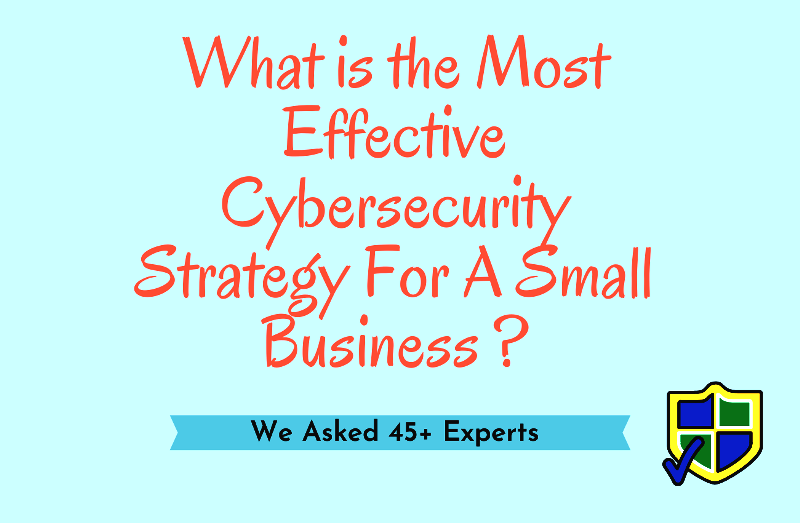

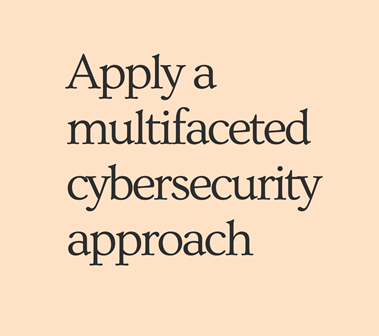
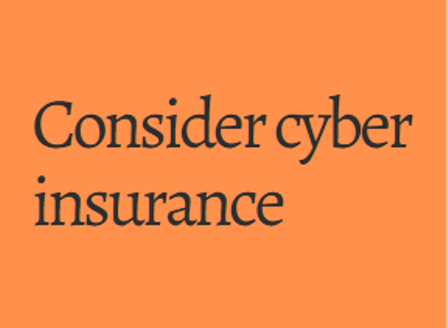
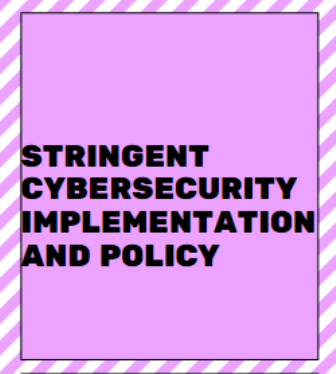
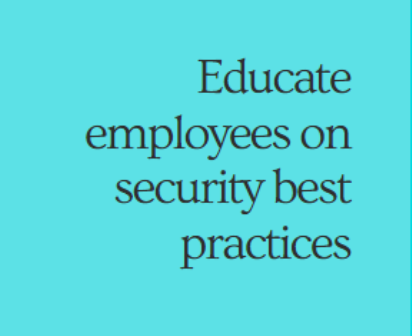

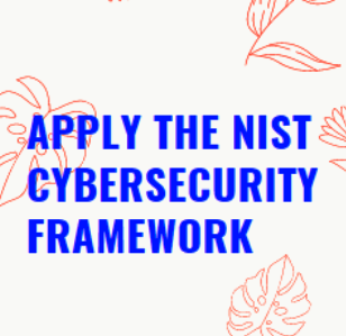
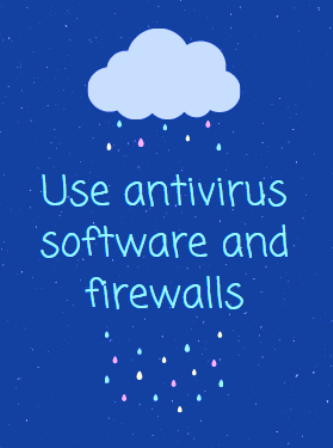
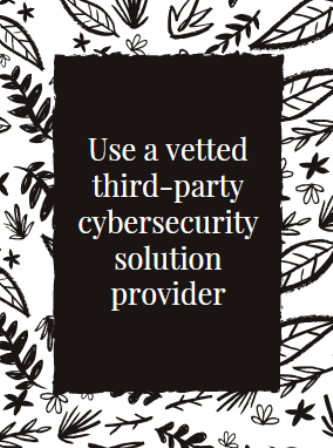
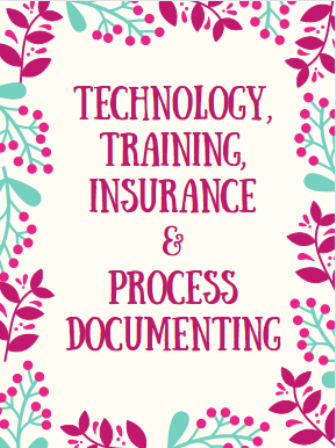
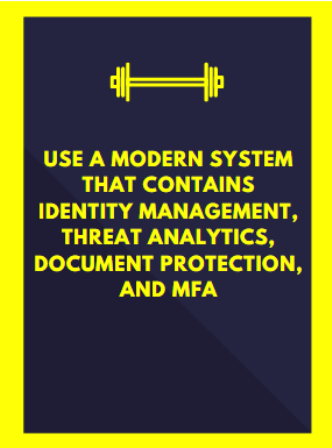
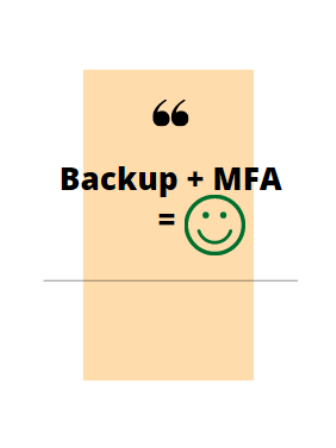

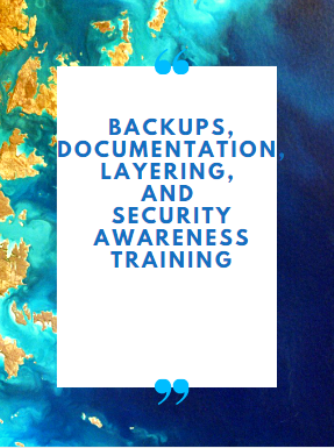



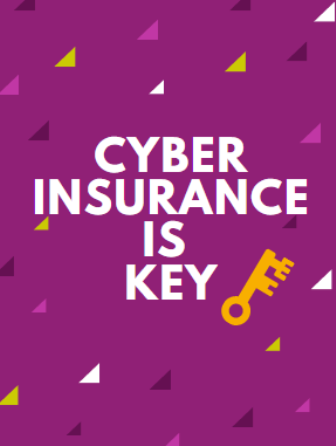


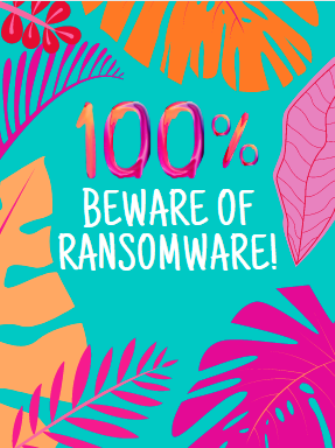

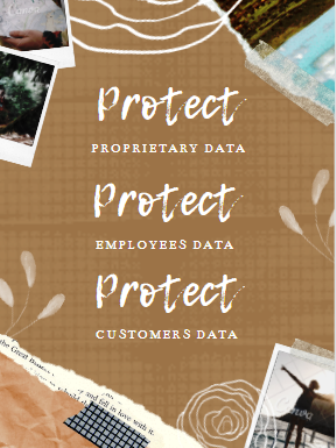
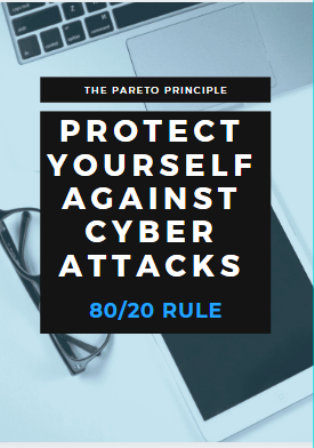
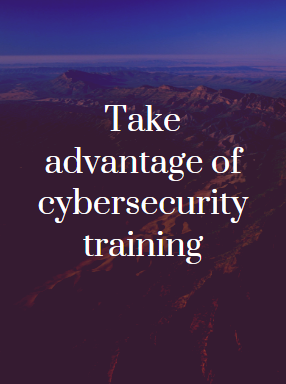

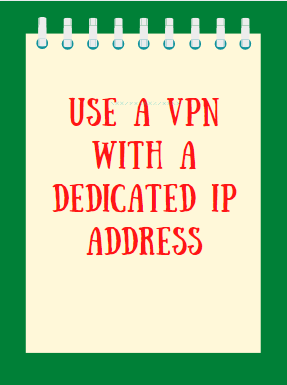
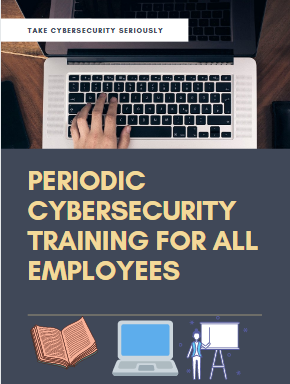
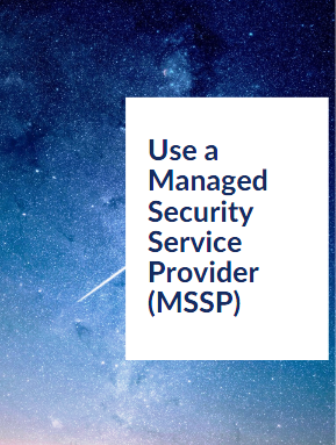
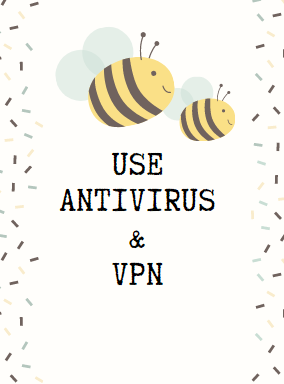
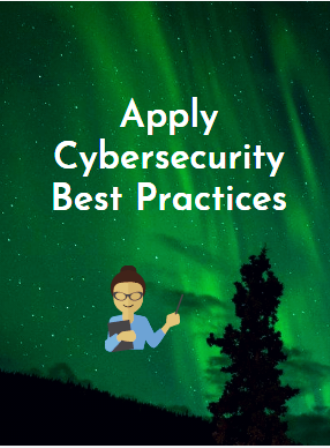
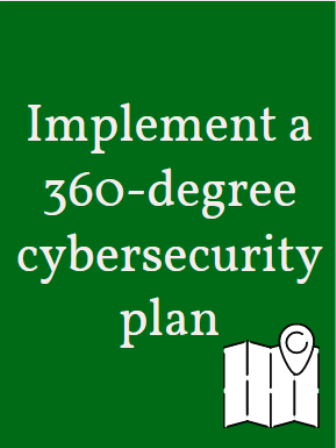
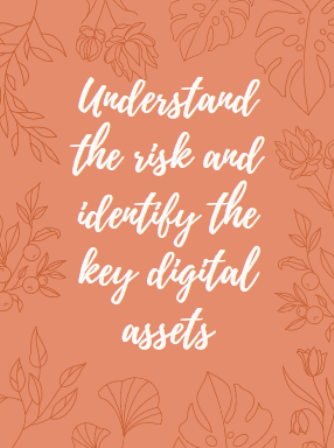
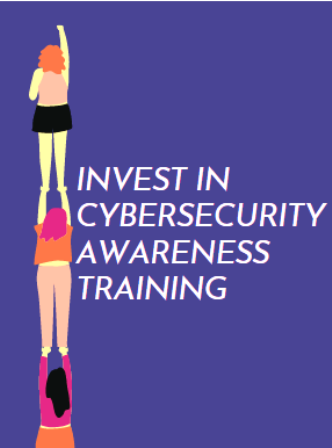
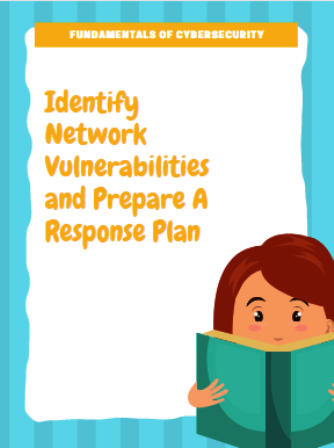
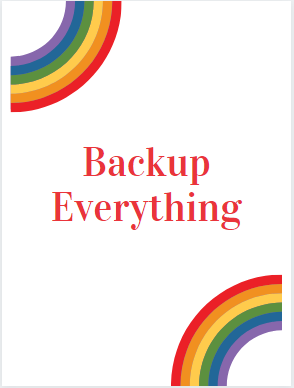
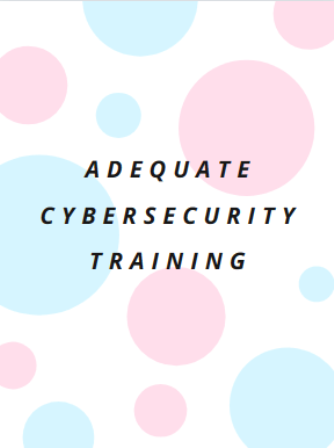

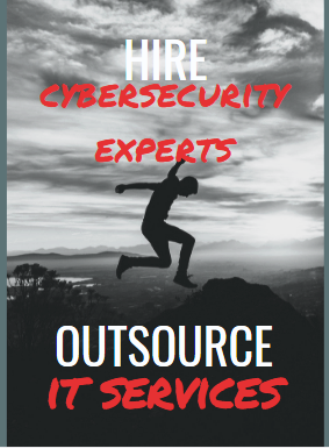

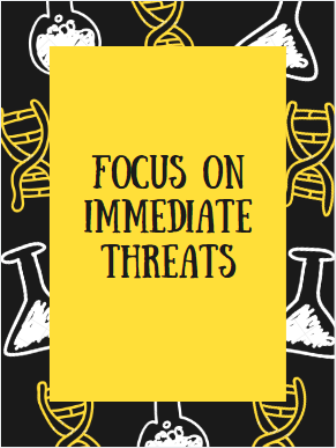
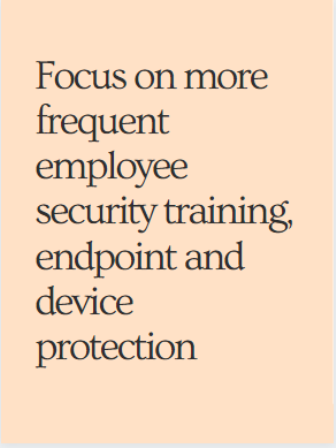
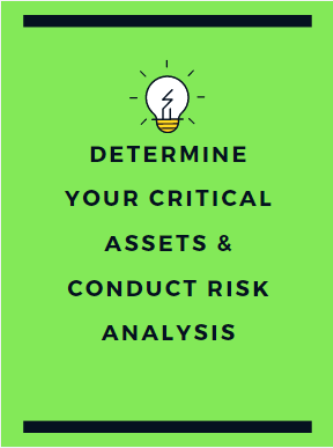
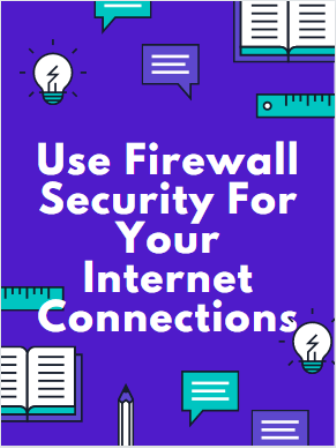
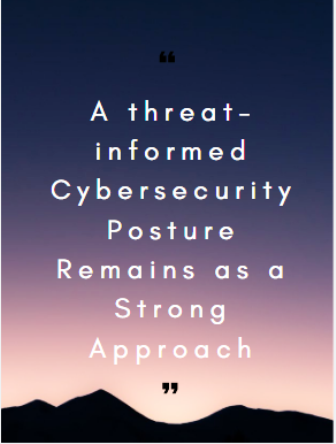
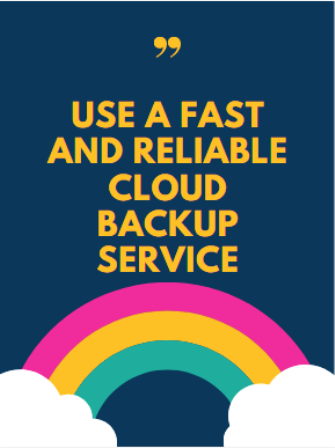

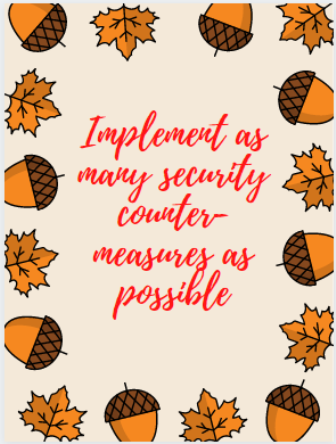




Looking forward to more informative contents from you. Got a lot of knowledge from this. Love how you discuss effective cybersecurity strategy for small businesses.